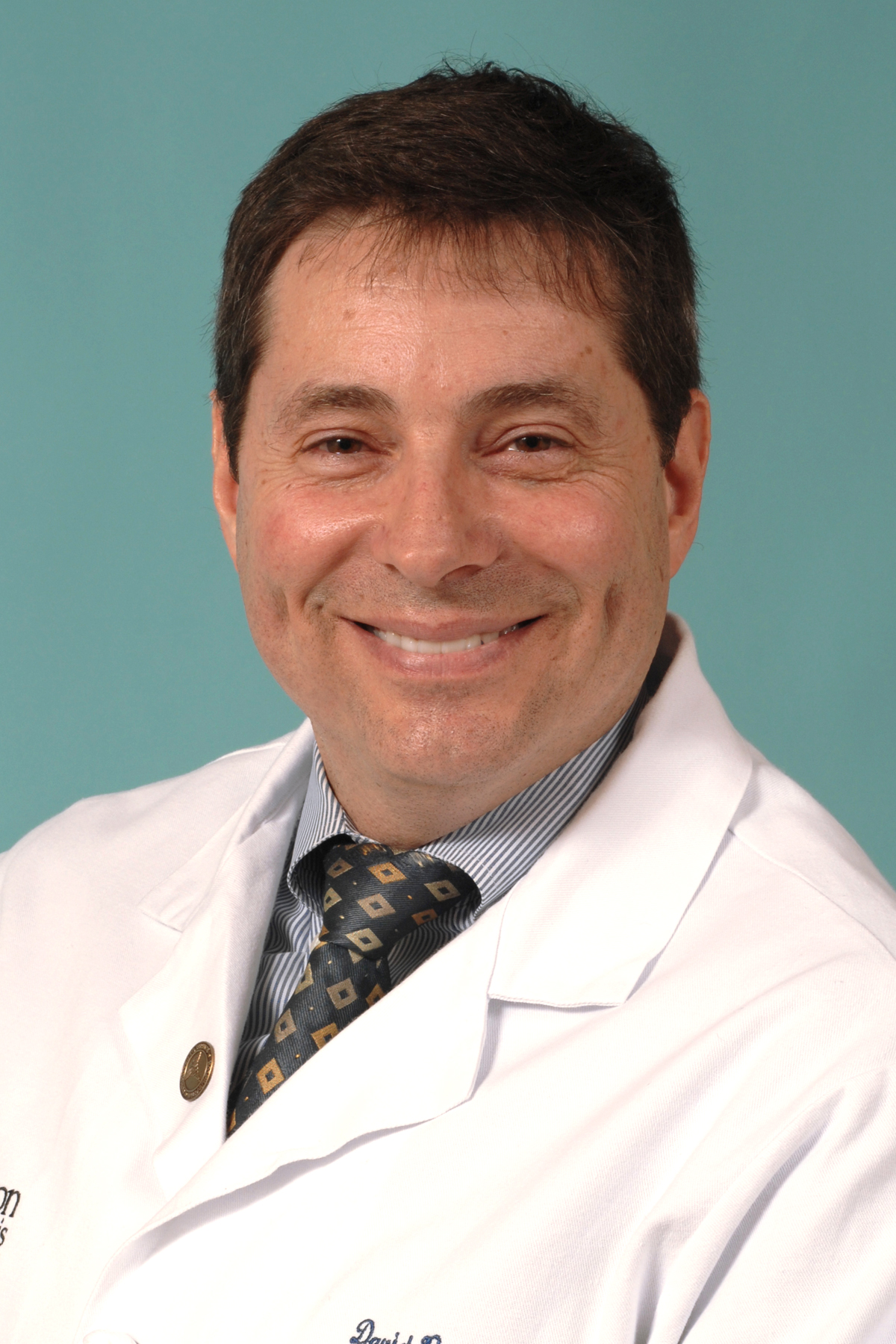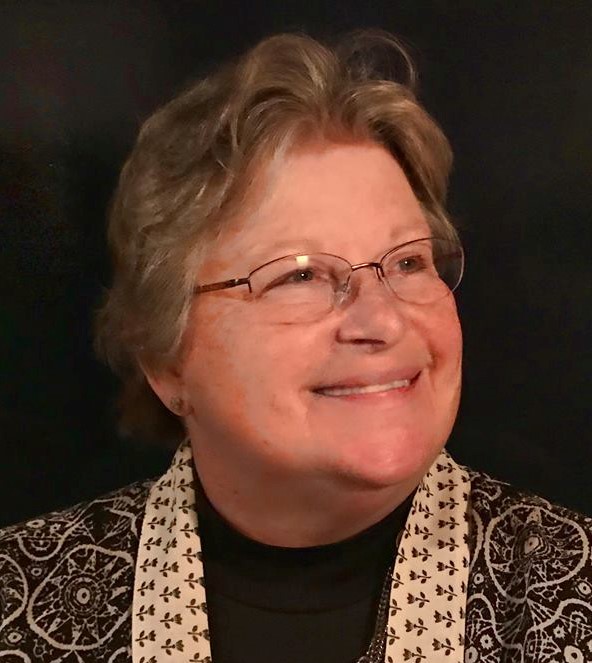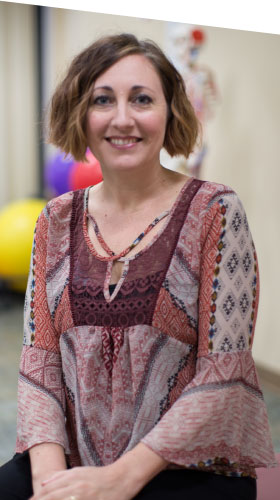
ADED eLearning
Certification Package: Older Driver Badge (Education Based)
-
Log In to Enroll
- This certification is available to: Non-member and Member. Please log in to enroll.
Awareness of the challenges of a rapidly growing diverse aging population and the specific aspects across the spectrum of aging drivers is critical for the driver rehabilitation specialist servicing this population. The service provider must be aware of the key issues related to the normal aging process as well as those common medical issues associated with this population. The driver rehabilitation specialist must be able to assess for the strengths or challenges for the skills used to drive, adapt the driving method, prescribe and or issue equipment when there are functional limitations and facilitate driving retirement as needed for the older, seasoned driver.
CLICK HERE for the MATRIX with complete list of competencies
Requirements to earn Older Driver Badge - Education Based
Completion of 10 hours of ADED administered Older Driver Eligible Education Courses (included in this purchase) *For those courses below with a quiz component, you must score a 75 or better.
- Exploding the Myths and Meeting the Challenges of Older Drivers
- Understanding Dementia for Driving Professionals
- Driving Cessation: Let’s Talk About It!
- Culture and Diversity Considerations in Driver Rehabilitation
- Pharmacology, Medications and Driving
- Developing Relationships with State Licensing Agencies: Driver Rehabilitation for Medically at Risk Drivers
- Research on Aging and Driving
Maintenance Requirements:
Badge earners that are an ADED member in good standing will have their badge renewed annually automatically. If a badge recipient allows their membership to lapse, the individual’s badge will lapse, and verification and icon use will be rescinded until membership is renewed OR they pay the non-member badge renewal fee. If the lapse exceeds five consecutive years, the individual will have to reapply, pay the current fees associated with earning the badge and complete the program from the beginning.
Badge earners that are non-members will have to pay an annual renewal fee of $50 to maintain the badge. If a badge recipient does not pay their annual renewal fee, the individual’s badge will lapse, and verification and icon use will be rescinded until membership is renewed OR they become a member of ADED in which it’ll renewal annually at no additional fee. If the lapse exceeds five consecutive years, the individual will have to reapply, pay the current fees associated with earning the badge and complete the program from the beginning.
Registration confirmation and payment receipts are e-mailed to the attendee. Fees paid are non-refundable. ADED reserves the right to modify content at any time. All complaints relative to the content, instructor, and registration procedures are to be directed to the ADED executive office: 200 1st Ave NW #505 Hickory NC 28601 or via email eLearning@aded.net
Current CDRS' & DRPs please refer to policy 403 for educational activity and maximum contact hours.
ADED's Education Code of Conduct applies to this and all ADED education.
-
This 1 contact hour course explores the senior driving population which is the most rapidly growing group of drivers. As professionals in the field of Driver Rehabilitation, it is imperative that we are aware of the nuances associated with this population. Issues of age related factors, the aging process, and the impact on driving will be discussed in this webinar. In addition, definitions will be established as to whom this population consists of and how each group’s needs are similar and different.
Abstract:
This 1 contact hour course explores the senior driving population which is the most rapidly growing group of drivers. As professionals in the field of Driver Rehabilitation, it is imperative that we are aware of the nuances associated with this population. Issues of age related factors, the aging process, and the impact on driving will be discussed in this webinar. In addition, definitions will be established as to whom this population consists of and how each group’s needs are similar and different.
Learning Objectives:
Learn terminology related to the aging process.
Identify the statistics related the population and driving.
Identify the degradation of cognition, and physical skills related to aging.
Identify what/whys of the concerns of the physician related to this population.
Dr. David Carr
Dr. Carr is the Alan A. and Edith L. Wolff Professor of Geriatric Medicine in the Department of Medicine and Neurology at Washington University in St. Louis. He is a board certified internist and geriatrician and completed his fellowship training in geriatrics at Duke University in 1990. Dr. Carr accepted a position as Clinical Director in the Division of Geriatrics and Nutritional Science at Washington University in 1994. He was a clinician in the Memory and Aging project in the Alzheimer's Disease Research Center for 20 years, continues as a researcher in this setting, and maintains an outpatient consulting practice in dementia. Dr. Carr is Medical Director of The Rehabilitation Institute of St. Louis and Parc Provence, the latter a community facility for dementia care excellence in the greater St. Louis area. He was the recipient of the Distinguished Clinical Faculty Award at Washington University in 2013 and named Teaching Attending of the Year from the PMR residency program in 2014. In 2015 he received the Neville Grant Barnes-Jewish Hospital Award for Clinical Excellence and Compassion and recipient of the Distinguished Service Award from the Association of Driving Rehabilitation Specialists (ADED). Dr. Carr is also the Director of the WU Neuroscience Driving Simulator Laboratory with a mission to enable neurologically impaired drivers to return to safe and active driving. He has been and currently is the principal investigator or co-investigator on research initiatives related to medical conditions and driving with funding through NIA, NEI, MoDOT, and past and/or present consulting work with NTHSA, TIRF, AAAFTS, University of Toronto, and AGS. He recently received a grant from the Missouri Foundation for Health to create a unique geriatric primary care clinic/model in the St. Louis area. He has been the primary author or co-author on over 80 peer review manuscripts and chapters.
-
This 2 contact hour webinar will help driving professionals understand what is happening to the brain in patients with dementia, the clinical manifestations of the disease and how they may manifest during driving.
This 2 contact hour course will review the many changes in behavior, communication, and interactive ability that take place when someone is living with dementia and this can have serious consequences on driving. This course will help driver rehabilitation specialists understand what is happening to the brain in patients with dementia, the clinical manifestations of the disease and how they may manifest during driving. Teepa will review how behaviors are connected to an individual’s change in sensation, sensory processing, and motor skill abilities due to the onset, then worsening, of various dementias. Participants will learn strategies for application of dementia knowledge to driver assessments, training and possible driving cessation.
Learning Objectives:- Identify early signs and symptoms of dementia
- Compare different types of dementia
- Understand what is physiologically occurring in patients with dementia and identify the clinical manifestations
- Recognize the effects of dementia on driving
- Discuss communication skills for working with dementia patients and their families
- Develop skills necessary for assessing drivers with dementia
- Develop an approach to working with patients who require driving cessation

Teepa Snow
MS, OTR/L, FAOTA
Teepa Snow is an advocate for those living with dementia and has made it her personal mission to help families and professionals better understand how it feels to be living with such challenges and seeks to change and improve life for everyone involved. Her practice has included everything from neuro-intensive care units in tertiary hospitals to in-home end-of-life care in rural parts of North Carolina. She has taught at medical schools and post-doctoral programs, health professional programs, colleges and universities, community colleges, and community centers. She led educational and training efforts as the Educational Director of the Eastern NC Chapter of the Alzheimer's Association for many years and was a major contributor and author of the in-depth hands on training delivered to family members and staff that led to the production of the DVD Accepting the Challenge: Providing the Best Care for People with Dementia, an internationally recognized resource for training and understanding dementia.
As one of America's leading educators on dementia, Teepa has developed a dementia care philosophy reflective of her education, work experience, medical research, and first hand caregiving experiences. She is a graduate of Duke University, and received her MS degree from the University of North Carolina in Chapel Hill. As an Occupational Therapist with over 30 years of experience in geriatrics, she has worked as the OT Director in a head injury facility, a clinical specialist in geriatrics for a Veteran's Administration Medical Center, and a Restorative Care Coordinator for a long term care facility. Her hands on caregiving experiences include providing direct care in home health, assisted living, long term care, and rehabilitation settings. Teepa also served as the Director of Education and Lead Trainer for the Eastern N.C. Chapter of the Alzheimer's Association, and as a clinical associate professor at UNC's School of Medicine, Program on Aging.
She has served as an interdisciplinary team member and helped develop and conduct clinical research with leading researchers in dementia and geriatric care. Through opportunities she has had, she has learned from people living with various forms of dementia including: head injuries, stroke, autism, down syndrome, and many other neurological and chronic health conditions. Teepa has become committed to building a program of support and care that provides a just right match between what the person needs and is able to do, and the environment and care partnering that can provide it.
This wealth of experience and knowledge led to her development of a Positive Approach to Care for those living with dementia or other brain changes. Teepa's teaching style integrates facts about the brain and what happens to someone when doing, thinking, reasoning or processing becomes different or difficult.
-
This 1.5 contact hour course will review how important it is to consider how a clients’ background (e.g., race, ethnicity, gender, generation, social location) influences the meaning they place on driving. How do our cultural norms and unconscious biases influence the decisions we make when our clients are different from us in any way? Within driving rehabilitation, cultural factors can even begin by deciding who we are able to see (i.e., who can afford driving evaluation and rehabilitation services), the importance of driving and alternative transportation, the rapport-building process and how we deal with conflict. By reflecting on how we understand concepts of culture and power dynamics, we can directly improve driver rehabilitation practice and client outcomes.
Abstract:
This is a 1.5 contact hour course. Given the importance of driving for independence across adulthood, it is important to consider how a clients’ background (e.g., race, ethnicity, gender, generation, social location) influences the meaning they place on driving. Individuals responsible for evaluating driving capacity inherently hold power over clients because of their role in determining outcomes of treatment or license suspension. How do our cultural norms and unconscious biases influence the decisions we make when our clients are different from us in any way? Within driving rehabilitation, cultural factors can even begin by deciding who we are able to see (i.e., who can afford driving evaluation and rehabilitation services), the importance of driving and alternative transportation, the rapport-building process and how we deal with conflict. By reflecting on how we understand concepts of culture and power dynamics, we can directly improve driver rehabilitation practice and client outcomes.
Learning Objectives:
By the completion of this course the attendee will…
Understand concepts of cultural competence, cultural safety, and cultural humility.
Be aware of the influence of transcultural power dynamics in driver evaluation and rehabilitation.
Recognize implications of cultural differences on driver rehabilitation.
Learn approaches for critical reflection in maintaining cultural competence/ safety/ humility in client relationships.
Janna MacLachlan, OT Reg. (Ont.)
Janna MacLachlan, OT Reg. (Ont.), is an Occupational Therapist and PhD Candidate at the University of Toronto, studying Social and Behavioral Health Sciences in Public Health. Janna has practiced as an Occupational Therapist since 2006, with roles involving generalist practice in remote Northern Inuit communities, acute care practice in an urban center and editor of a national occupational therapy practice magazine. Her dissertation research will explore how rehabilitation services should be offered in Inuit communities by centering Inuit worldviews. She is interested in the impact of colonization on health care, how Indigenous-settler reconciliation can occur within the occupational therapy profession, and the impact of societal power and privilege in clinical practice.

Ruheena Sangrar
Occupational Therapist
Ruheena Sangrar is an Occupational Therapist, Adjunct Lecturer in the Department of Occupational Science and Occupational Therapy at the University of Toronto, and PhD Candidate in the School of Rehabilitation Science at McMaster University. She has experience working in multiple hospital-based settings, including acute care, in-patient and out-patient rehabilitation within the Greater-Toronto-Area and Northern Ontario, having conducted driver screening and office-based assessments, neuro-rehabilitation, and health promotion. Her doctoral research focuses on designing proactive evidence- and user-informed approaches to keeping older drivers safe behind-the-wheel for as long as possible. Her research has also included exploring how older drivers learn to use in-vehicle technologies in their new cars and the influence of changes to regulatory requirements for reporting medically at-risk drivers in Ontario on Occupational Therapy practice.
-
Medications can have side effects that impact safety behind the wheel. Despite high prescription and over-the-counter medication use, most drivers using medications have never talked with their health care providers about how the drugs might affect their safe driving. The goal of this presentation is to explain the range of effects of legal, illegal, over-the-counter, and prescription medications that may impair driving ability. This is a 1.5 hour course.
This 1.5 hour course. Medications can have side effects that impact safety behind the wheel. Despite high prescription and over-the-counter medication use, most drivers using medications have never talked with their health care providers about how the drugs might affect their safe driving. The goal of this presentation is to explain the range of effects of legal, illegal, over-the-counter, and prescription medications that may impair driving ability.
Learning Objectives:
By the end of this seminar, participants will:- Identify different classes of medication that may impact driving.
- Understand red flags for driving with respect to medications and/or polypharmacy.
- Discuss resources to obtain current information regarding specific medications, their interactions and potential impact on driving safety which may range from positive to negative to neutral.
- Assess the potential impact of cannabis use and driving.

Dr. Kathleen Collins
Clinical Pharmacist
Kathleen Collins is a Senior Clinical Pharmacist at Craig Hospital. Dr. Collins received her bachelor and doctoral degrees from the University of Colorado and is a Board Certified Pharmacotherapy Specialist. Dr. Collins has been a pharmacist in community and hospital settings for over twenty years. She has presented locally and nationally on topics of medication use and safety and is a Clinical Instructor for the University of Colorado and Regis University Schools of Pharmacy. Dr. Collins is passionate about educating staff, patients, and students about optimizing the use of medications.
-
State requirements for driving and the regulations for reporting of medical conditions are unique to each state. This seminar will familiarize you with methods to determine a state’s medical reporting regulations, and ways to contact your state’s medical review team. This seminar will also familiarize the participant with Medical Guidelines developed by the National Highway Traffic Safety Administration (NHTSA). In addition, participants will be able to identify key components for required medical documentation and ways to be supportive of the licensing agencies in determining medical fitness for driving, with an emphasis on older drivers. This is a .5 hour course.
This is a .5 hour course. State requirements for driving and the regulations for reporting of medical conditions are unique to each state. This seminar will familiarize you with methods to determine a state’s medical reporting regulations, and ways to contact your state’s medical review team. This seminar will also familiarize the participant with Medical Guidelines developed by the National Highway Traffic Safety Administration (NHTSA). In addition, participants will be able to identify key components for required medical documentation and ways to be supportive of the licensing agencies in determining medical fitness for driving, with an emphasis on older drivers.
Learning Objectives:
Upon completion of this presentation:
- The attendee will be able to identify strategies to learn the licensing standards for drivers with medical conditions for their state.
- The attendee will be to identify specific criterion that these organizations consider to be a consensus of practices/standards across all states.
- The attendee will be able to identify statistics related to fatalities and the older or medically-at-risk driver population (fact sheet from NHTSA)
- The attendee will be able to identify methods to advocate for the older/medically-at-risk driver population, recognizing the shared commitment between the state driver licensing agencies and the driver rehabilitation profession to address this issue.

Carol Wheatley
OTR/L, CDRS
Carol Wheatley is an Occupational Therapist and Certified Driver Rehabilitation Specialist at MedStar Good Samaritan Hospital in Baltimore, MD. Carol completed a BS in Occupational Therapy for Virginia Commonwealth University, and earned an MS in Education from Johns Hopkins University. She has been providing driver rehabilitation services for nearly 20 years. She has co-authored a textbook chapter and several journal articles on the topic of driving assessments and training. She has presented at numerous local and national driver safety forums on the value of driver rehabilitation, including the regional AAMVA conference on the topic of coordination between driver rehabilitation practitioners and state driver licensing agencies.
-
This 1.5 contact hour course will focus on driving cessation. In this presentation, experiences will be shared with developing and hosting driving cessation groups for well-elderly drivers over the age of 65 in the hopes of encouraging the normalization of driving cessation.
This is a 1.5 contact hour course. However we view driving, there is no doubt it is the preferred method of community mobility for many individuals. So what happens when changes associated with aging interfere with the ability to drive? For many individuals, driving cessation is a one-time event that is imposed upon them and therefore, the newly retired driver could experience anger, grief, depression, and may not accept their new role as a non driver. Many times, a Driving Rehabilitation Specialist (DRS) is involved in this one-time “no driving” decision. But what if a DRS could take a positive, preventative approach to driving cessation? What if driving cessation could be viewed as a normal life event, just like retirement from work? In this presentation, experiences will be shared with developing and hosting driving cessation groups for well-elderly drivers over the age of 65 in the hopes of encouraging the normalization of driving cessation.
Learning Objectives:
After viewing this training, the attendee will be able to:
Understand driving cessation and its affect on the aging population
Describe the current body of literature surrounding the topic of driving cessation
Interpret conceptual models and apply them to the topic of driving cessation
Create and implement driving cessation groups to encourage the normalization of driver retirement
Amy Brzuz, OTD, OTR/L
Amy Brzuz, OTD, OTR/L received her Post-Professional Occupational Therapy Doctorate/OTD from Chatham University, Pittsburgh, PA in 2014. She is currently the Assistant Professor in the Occupational Therapy Master’s Degree Program at Gannon University, is the Current Program Chair (MSOT and ppOTD) and Past Academic Fieldwork Coordinator. She has presented and published in the field of driver rehabilitation. She was awarded the 2004 HealthSouth Rehabilitation Hospital of Erie Clinician of the Year.
-
This 2 contact hour activity requires review, comprehension and successful completion of a quiz of the This 4th edition of the Clinician’s Guide to Assessing and Counseling Older Drivers. The Guide is a product of a cooperative agreement between the American Geriatrics Society (AGS) and the National Highway Traffic Safety Administration (NHTSA).
This 2 contact hour activity requires review, comprehension and successful completion of a quiz of the This 4th edition of the Clinician’s Guide to Assessing and Counseling Older Drivers. The Guide is a product of a cooperative agreement between the American Geriatrics Society (AGS) and the National Highway Traffic Safety Administration (NHTSA).
Successful completion of a quiz requires scoring 75% or better. You will have 60 minutes to complete the quiz. You will have 3 attempts to pass the quiz.
